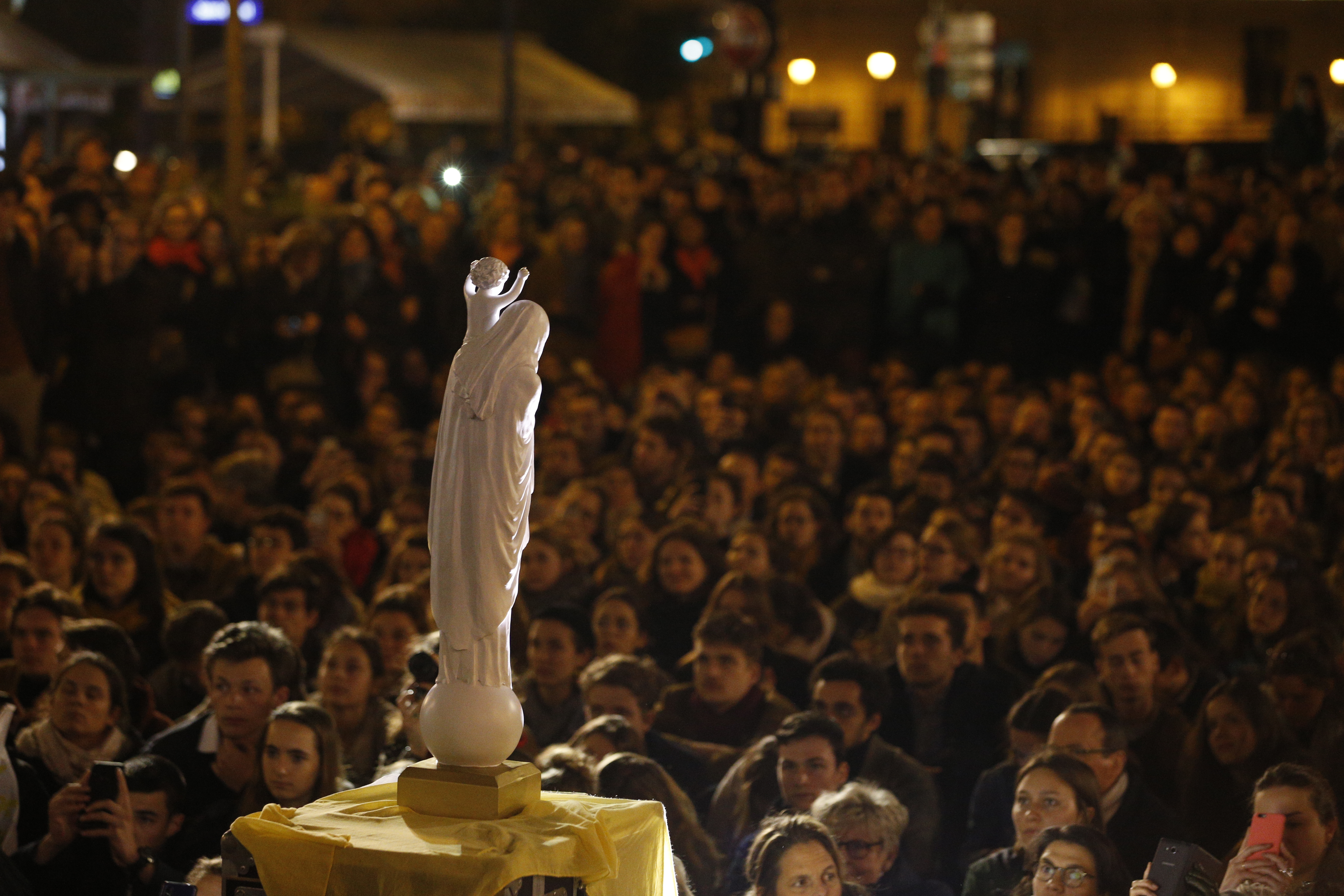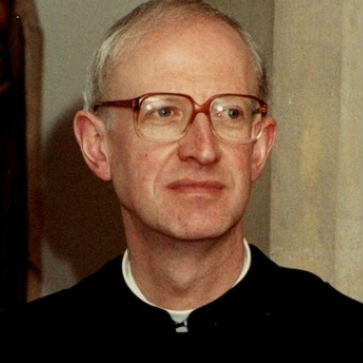The Vatican says it provided crucial information which contributed to the arrest of a former Benedictine abbot for child sexual abuse offences, and are challenging parts of the evidence given by the Metropolitan Police to a UK public inquiry about the case.
Laurence Soper, 76, who served as Abbot of Ealing Abbey in West London, was based in Rome as bursar of the monastery of Sant’Anselmo when he fled police bail in 2011. He was eventually tracked down by police in Kosovo in 2016.
The former monk is now serving an 18-year prison sentence after being convicted at the end of 2017 of 19 counts of indecent and serious sexual assault - including rape - against ten boys at St Benedict’s School, Ealing, where he taught.
Andrew Soper, who took the name Laurence when he entered the monastery at Ealing, is the highest ranking figure from the Catholic Church in England and Wales to be convicted of sexual abuse. His case gained international notoriety after he became a fugitive from justice, using money from his Vatican bank account to fund a life on the run.
During the Independent Inquiry into Child Sexual Abuse British police sought to lay the blame for Soper’s five-year-long disappearance with the Vatican and the Catholic Church saying there was a “lack of appetite” to disclose information about the ex-Abbot.
But The Tablet can report that the Holy See played a critical role in ensuring Soper was arrested on 15 May 2016 by alerting both the United Kingdom Financial Intelligence Unit - part of the National Crime Agency - and law enforcement to Soper’s whereabouts.
Weeks before his arrest the independently wealthy monk sent a fax requesting funds be transferred from his account at the Vatican bank, the Institute for the Works of Religion (IOR), to an account in Kosovo.
According to the Vatican, upon receipt of this request officials at the IOR filed a suspicious activity report with the Holy See’s financial watchdog, the Vatican Information Authority, who in turn informed their counterparts in London. The Holy See watchdog also reported the information to the Vatican police who informed Kosovan and British police. UK Police had issued an international arrest warrant for Soper.
“The competent authorities of the Holy See informed the English authorities, and this has been instrumental for the arrest of Soper in Kosovo,” Vatican spokesman Alessandro Gisotti told The Tablet.
“After checking with the competent authorities, I can state that the reporting system of suspicious activities of the Holy See worked. The IOR transmitted a report of suspicious activity to AIF [information authority], and from here international collaboration was activated, on the two levels of financial intelligence (FIU English) and of law enforcement (police), through the Gendarmerie Corps.”
The new details from the Vatican call into question 5 February 2019 evidence from Metropolitan Police officers saying the Holy See did not help enough in tracking down Soper. At the same time, the police confirmed at the inquiry that Soper had requested funds from the Vatican bank while in Kosovo.
Police also admitted to the inquiry that Soper had not been placed on a European wide database of wanted individuals until December 2015, while the former abbot had been allowed to keep his passport and return to Rome after police questioned him about the offences in London in 2011.
Statements from police officers submitted to the inquiry said that “several formal requests were submitted to the Vatican State via the UK National Crime Agency for intelligence on Soper's banking history,” but no replies were received. The Metropolitan Police told The Tablet the requests were made at the end of 2015.
Officers pointed out, however, that in “late March 2016” Soper had requested funds from the Vatican where he gave his address and for the “funds to be transferred from his Vatican Bank account to an account he had set up with a bank in Kosovo.”
When questioned about this during the inquiry Metropolitan Police Commander, Neil Jerome said: “I think what the officers are referring to there is the requests that were made by Soper to access a bank account that would have been within the knowledge of individuals within Rome, and so that is what I think they are referring to. Because he was asking for monies to be transferred to a bank account in Kosovo, that other agencies were clearly aware of, but did not provide that to the police.”
He added: “I think they are referring to the lack of appetite in those agencies to provide that information to the police.”
Mr Gisotti stressed “it is not correct to say that the IOR did not cooperate,” pointing out that as “a financial institution based in a sovereign state” requests from a “foreign police force…for information relating to accounts at the IOR must be transmitted through the ordinary channels of international collaboration.”
Sources in the Vatican say it is possible the UK police requests for information may not have been answered because they came through the incorrect channels, and without the required legal authority for state-to-state requests for information.
When asked by The Tablet about the Vatican's evidence, the UK police and crime agency refused to confirm or deny whether the Holy See offered information about Soper which led to his arrest.
A spokeswoman for the Metropolitan police said only that officers “submitted two formal requests to the Vatican State via the National Crime Agency (NCA) for financial information” in November 2015 and December 2015 but received no response. For their part, the National Crime Agency said: “The NCA does not routinely confirm or deny the existence of investigations or the receipt of intelligence.”
The request for information to the Vatican came four years after an article by former editor The Tablet Catherine Pepinster reporting both that Soper had inherited money from his parents and his possible ties to the Vatican bank.
According to the inquiry, Soper had around £400,000 at his disposal while, during his trial, it was stated he had withdrawn £182,000 from his IOR account before going on the run. This sum has, however, been disputed by at least one Vatican source. At the time of his disappearance in 2011 regulatory controls over the Vatican bank were much weaker than they are today.
The details of the Vatican’s co-operation on Soper is an example of the progress that has been made regarding the financial reforms undertaken under the Francis pontificate. Mr Gisotti pointed out that since 2013 the Holy See has been a member of the Egmont Group which brings together financial authorities in 150 jurisdictions. He added that a memorandum of understanding between the Holy See and the UK on financial information sharing was signed in 2014 while the Vatican gendarmerie is part of the Interpol circuit.
He also confirmed that the Soper case was included in sanitised form in the Vatican Information Authority’s 2018 annual report.
It states: “A customer of a reporting subject, a foreign citizen, was indicted for non-financial crimes in his country and the police issued an international arrest warrant. The customer requested the execution of a wire transfer via a telefax from a third country. The reporting subject filed a SAR to AIF. AIF suspended the execution of the transaction and filed a Report to the Corps of the Gendarmerie. The Corps of the Gendarmerie informed the police of the country of the customer and the police of the country where the customer ordered the wire transfer, via Interpol. The customer was then detected and arrested.”



 Loading ...
Loading ...